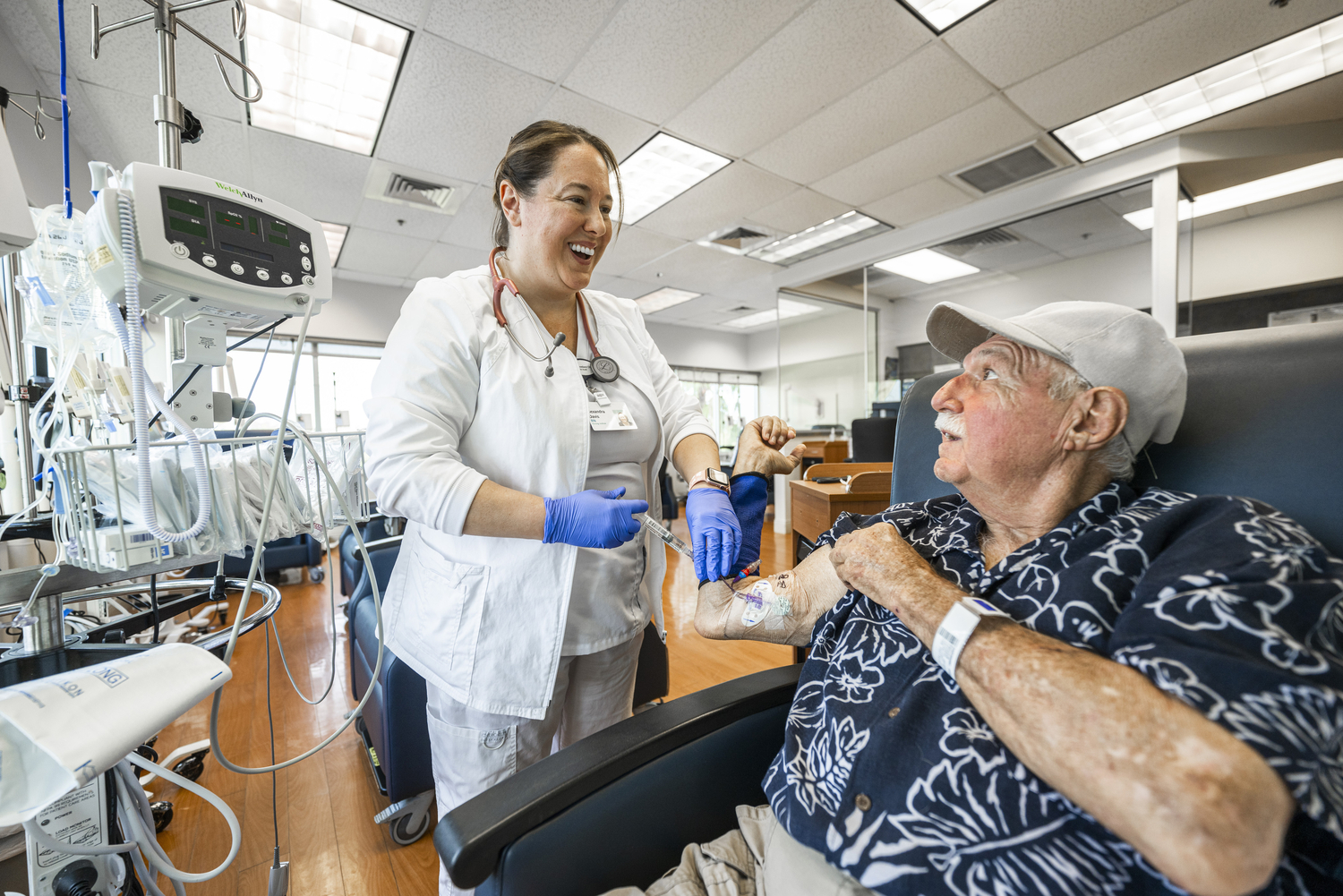
Cancer care at Cleveland Clinic Florida is evolving with a focus on improving the quality of life of patients with cancer both during their treatment course and after. Now, thanks to a VeloSano pilot grant, a new research effort is underway aimed at furthering this comprehensive approach to cancer care.
Zeina Nahleh, MD, Cancer Center Director, Regional Vice Chief, and Chair of Hematology-Oncology at Cleveland Clinic Florida, is among the more than 20 physicians and scientists to be awarded a VeloSano pilot grant, made possible by the VeloSano cancer fundraising initiative of 2023. Her award marks the first time that VeloSano research dollars will be applied directly to patient care practices in Florida.
“This came as part of our emphasis on treating the patients holistically and always looking for new ways to improve the quality of life and the mental health of patients with cancer,” she says.
Dr. Nahleh’s VeloSano-funded research involves the exploration of immersive virtual reality (VR) as a therapeutic tool. This specific form of VR provides patients with a simulated experience that enables them to interact with an artificial visual environment and separates them from their surroundings, using advanced software and a special head mount to create a 3D environment in real-time.
“We hope that this could be a helpful distractive method that will shift the focus of the patient from an unpleasant to a pleasant stimulus,” she explains. By immersing patients in soothing environments such as a tropical forest, beach, island, or lake house, paired with their preferred music, the goal is to reduce their anxiety and improve their overall experience during treatment.
The study will be conducted as a randomized controlled trial involving two groups of patients, selected based on their baseline anxiety levels. Those with high anxiety will participate, with half experiencing the immersive VR and the other half continuing their preferred activities during chemotherapy, like reading or watching TV. The effectiveness of VR in reducing anxiety, distress, pain, and sadness will be assessed using validated questionnaires administered before and after the experience.
“This technology is typically associated with gaming and entertainment, and now we are trying to bring this to the patients in order to improve their care,” says Dr. Nahleh. “This innovative approach has the potential to significantly enhance patients’ ability to cope with the stress of cancer treatment.”
What excites Dr. Nahleh is the universal applicability of this technology. It is not cancer-specific and can include Spanish-speaking patients. This inclusivity is aimed at decreasing disparity among patients and offers benefits to a broader demographic in the Florida region.
Dr. Nahleh says this research would not have been possible without the collaboration of her team, which includes Rafael Arteta-Bulos, MD, and research fellow Maria Heran Montes.
The team is especially proud to be the recipients of the first Florida VeloSano grant and is incredibly grateful for the support from Alex Adjei, MD, PhD, Chair of the Taussig Cancer Institute in Ohio, who reviewed their project. “This completely emphasizes the fact that even if we are in Florida or in any other Cleveland Clinic location, we work as one team, as one Cleveland Clinic, and we have access to all of the resources that Cleveland Clinic can provide,” says Dr. Nahleh.
She also expressed her gratitude for the many donors, volunteers and fundraisers who contribute to the success of VeloSano.
“We are at the forefront of innovation, technology and creativity,” Dr. Nahleh says. The effort from everyone behind the scenes is really paying off, and it’s reaching beyond just Cleveland, Ohio; it’s reaching all the patients in any part of Cleveland Clinic.”
